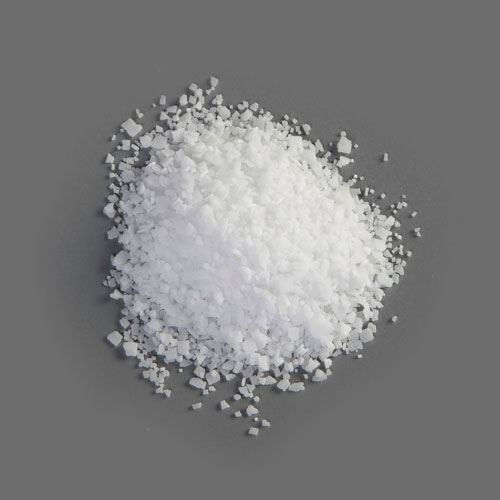
Benzoic Acid
150 INR/Kilograms
Product Details:
- CAS No 65-85-0
- Melting Point 122.3 C
- Molecular Formula C7H6O2
- Molecular Weight 122.12 GSM (gm/2)
- Solubility Water
- Physical Form Powder
- Density 1.27 Gram per cubic centimeter(g/cm3)
- Click to view more
X
Benzoic Acid Price And Quantity
- 25 Kilograms
- 150 INR/Kilograms
Benzoic Acid Product Specifications
- Food Grade
- Industrial
- 65-85-0
- 122.3 C
- 12 Months
- Room Temperature
- 99%
- 1.27 Gram per cubic centimeter(g/cm3)
- Powder
- C7H6O2
- 200-618-2
- Water
- 122.12 GSM (gm/2)
Benzoic Acid Trade Information
- 100 Kilograms Per Day
- 6 Days
Product Description
Benzoic acid is most commonly found in industrial settings to manufacture a wide variety of products such as perfumes, dyes, topical medications and insect repellents. Its salt (sodium benzoate) is commonly used as a pH adjustor and preservative in food, preventing the growth of microbes to keep food safe. This chemical can be availed from us at competitive rates.
Benzoic Acid Properties:
1. Chemical Structure:
Benzoic acid has a simple aromatic ring structure, consisting of a benzene ring (C6H5) with a carboxyl group (-COOH) attached.
2. Physical Properties:
a. Appearance: Benzoic acid is a white crystalline solid.
b. Odor: It has a characteristic, somewhat pleasant odor.
c. Melting Point: The melting point of benzoic acid is around 122 degree centigrade.
3. Solubility:
Benzoic acid is sparingly soluble in cold water but more soluble in hot water. It is highly soluble in organic solvents such as ether, chloroform, and acetone.
4. Acidity:
Benzoic acid is a weak acid. In water, it partially ionizes to release hydrogen ions, making it slightly acidic. The carboxyl group (-COOH) is responsible for its acidic properties.
5. Synthesis:
Benzoic acid can be synthesized through various methods, including the oxidation of toluene, the hydrolysis of benzoyl chloride, or the carboxylation of Grignard reagents.
6. Preservative Properties:
Due to its antimicrobial properties, benzoic acid and its salts (such as sodium benzoate) are commonly used as preservatives in food and beverages. They help prevent the growth of bacteria, yeast, and molds.
7. Health Concerns:
Benzoic acid and its salts are generally regarded as safe when used in appropriate amounts as food preservatives. However, excessive intake may lead to health issues in some individuals, and allergic reactions are possible.
8. Derivatives:
Benzoic acid can undergo various chemical reactions to form derivatives. For example, esters of benzoic acid are common, and they are often used in the fragrance and flavor industries.
Applications of Benzoic Acid:
1. Food and Beverage Preservative:
Benzoic acid and its salts, such as sodium benzoate, are widely used as preservatives in the food and beverage industry. They help prevent the growth of bacteria, yeast, and molds, extending the shelf life of products.
2. Pharmaceuticals:
Benzoic acid is used in the pharmaceutical industry as a precursor for the synthesis of various drugs and active pharmaceutical ingredients (APIs). It can be transformed into benzyl benzoate, which is used in topical medications.
3. Plasticizers:
Benzoic acid and its derivatives are employed as plasticizers in the manufacturing of plastics and resins. They can enhance the flexibility and durability of certain plastic materials.
4. Perfumes and Fragrances:
Benzoic acid and its esters are utilized in the production of perfumes and fragrances. Esters derived from benzoic acid contribute to the aromatic profiles of many scented products.
5. Antifungal Agents:
Benzoic acid's antimicrobial properties make it suitable for use in antifungal creams and ointments. It helps inhibit the growth of fungi on the skin.
6. Intermediate in Chemical Synthesis:
Benzoic acid serves as an important intermediate in the synthesis of various organic compounds. It can be transformed into benzaldehyde, which is a key building block in the production of dyes, perfumes, and flavoring agents.
7. Laboratory Reagent:
In laboratory settings, benzoic acid is used as a reagent for certain chemical reactions. Its properties make it valuable for experimental work and research.
8. Animal Feed Preservation:
Benzoic acid and its derivatives are sometimes added to animal feeds to act as preservatives, helping to maintain the quality of the feed by inhibiting the growth of microorganisms.
9. Dye Intermediates:
Benzoic acid is involved in the synthesis of various dye intermediates, contributing to the production of dyes used in textiles and other industries.
Benzoic Acid FAQ:
Q. What is Benzoic Acid?
Ans: Benzoic acid is a crystalline organic compound with the chemical formula C7H6O2. It is a carboxylic acid, containing a benzene ring and a carboxyl group (-COOH).
Q. What is the Source of Benzoic Acid?
Ans: Benzoic acid can be synthesized through various methods. It can be obtained from toluene by oxidation, from benzyl chloride by hydrolysis, or through the carboxylation of Grignard reagents.
Q. What are the Physical Properties of Benzoic Acid?
Ans: Benzoic acid is a white crystalline solid with a melting point around 122 degree centigrade. It has a characteristic odor and is sparingly soluble in cold water but more soluble in hot water.
Q. What are the Applications of Benzoic Acid?
Ans: Benzoic acid is used as a preservative in the food and beverage industry, in pharmaceuticals, plastics, perfumes, and as an intermediate in chemical synthesis. It also finds applications in animal feed preservation and as a laboratory reagent.
Q. Is Benzoic Acid Safe for Consumption?
Ans: Benzoic acid and its salts, such as sodium benzoate, are generally regarded as safe when used in appropriate amounts as food preservatives. However, excessive intake may lead to health issues in some individuals, and allergic reactions are possible.
Q. What Role Does Benzoic Acid Play in Food Preservation?
Ans: Benzoic acid inhibits the growth of bacteria, yeast, and molds, acting as a preservative in various food and beverage products. It helps extend the shelf life of these products.
Q. Can Benzoic Acid be Found Naturally in Foods?
Ans: While benzoic acid is not typically found in high concentrations in natural foods, it can occur naturally in some fruits and their juices, such as cranberries and cinnamon.
Q. What are the Derivatives of Benzoic Acid?
Ans: Benzoic acid can undergo various chemical reactions to form derivatives. Common derivatives include esters, such as benzyl benzoate, which is used in pharmaceuticals and as a solvent.
Q. Is Benzoic Acid the Same as Benzoin?
Ans: No, benzoic acid and benzoin are different compounds. Benzoic acid is a carboxylic acid, while benzoin is a compound derived from benzoin resin and is often used in perfumes and incense.
Q. Can Benzoic Acid be Harmful?
Ans: When used within regulatory limits, benzoic acid is generally considered safe. However, excessive intake or exposure may lead to health issues. Individuals with specific health conditions or allergies should exercise caution.
Tell us about your requirement

Price:
Quantity
Select Unit
- 50
- 100
- 200
- 250
- 500
- 1000+
Additional detail
Mobile number
Email







